How Adaptogens Actually Work to Quell Your Stress
Stress is exhausting. These plants are here to help.

Adaptogens are certainly not new to the scene in terms of stress relief; these herbs have been used for centuries in Ayurveda, traditional Chinese medicine, and Tibetan practices to help people cope with both mental and physical stress. But how exactly do they work, and how do we best incorporate them into our daily lives?
We consulted four experts to help us better navigate the ins and outs of these plants: Founder and CSO of Kamu Labs, herbalist Robyn Caywood; founder of MoonJuice Amanda Chantal Bacon; board-certified internist and locum hospitalist in New York Dr. Sunitha D. Posina MD; and neuropsychologist and faculty member at Columbia University in New York City Dr. Sanam Hafeez all weigh in on the benefits of adaptogens when dealing with stress.
Defining Stress
To help relieve some of those ever-looming anxieties, we must first understand what stress is and how it functions in our bodies. Simply put, stress occurs when the brain perceives any type of danger or threat. Once the brain registers this, it sends messages to the endocrine system, which regulates the hormones in the body. On a chemical level, the adrenal gland begins to produce adrenaline, which gives us a burst of energy in our fight-or-flight mode. At the same time, cortisol, the stress hormone, provides a surge of glucose to the brain as food to help us better think of ways to escape a dangerous situation. In small doses, this process is natural and crucial for our survival.
Typically, this process should only occur when there are real-life dangers that directly affect our survival. Unfortunately, as Caywood explains, “our brain often cannot differentiate between what is a real, life-threatening stress and what isn’t,” meaning that we can experience this chemical reaction for things like our overflowing inboxes or schedules full of Zoom meetings.
In fact, Bacon explains, “blue light from devices that disrupts our circadian rhythms, [harmful] additives to food, toxins in beauty products and cleaning products, and even things as simple as loud noises all read as stress.” We respond to these non-life-threatening stressors with the same chemical and physiological process as we would when we are in a dangerous real-life situation.
The Three Stages of Stress
So what happens if stress is left unattended? GAS, or General Adaptation Syndrome, was first coined by Dr. Hans Selye, better known as “the father of stress research.” “GAS is the three-stage process that outlines the physiological changes our bodies experience when under physical or emotional stress,” explains Dr. Hafeez. These steps include an initial stage of alarm, during which the brain perceives a stressor. The second stage is known as the resistance phase, during which the body produces adrenaline and cortisol to defend itself against any dangerous situation. The last phase is exhaustion, which occurs when all of the hormones and energy intended for protection depletes.
It is imperative to address stress before reaching the exhaustion phase, as it can have negative effects on our health. Caywood explains, “In those stressful, dangerous situations, the brain will shut down all our non-essential systems: our digestive system, our immune system, and our nervous system” to preserve energy for tackling the danger at hand. This, in combination with our skyrocketing glucose levels courtesy of cortisol, can lead to weight gain, prediabetes, decreased libido, high blood pressure, chest pains, heart problems, problematic sleep, brain fog, and gut health issues.
Adaptogens 101
You may have seen the word adaptogen slapped across the label of your latest serum, but they do have functions other than providing the skin with a youthful glow. Adaptogens are herbs found in nature that help the body cope with physical and emotional stress. Says Bacon, “[Adaptogens] have adaptive energy because their environment has stressed them themselves; whether that is the harsh wind, freezing temperatures, or [arid] temperatures, the plants have an adaptive energy in itself and by the miracle of nature.” When we consume these plants, they can help us adapt to stressful situations via their protective chemicals.
In that vein, are all plants growing in the freezing tundra adaptogens? Not exactly. Caywood explains, “There are three criteria that would make something be considered an adaptogen: One is that it had to be non-toxic, safe, and non-habit-forming. The second would be that it would restore your overall balance in your body, and third, it would have to counter the effects of stress directly. They help us adapt to unforeseen circumstances.”
When looking at adaptogens in relation to GAS, they are said to keep the body in the second resistance phase for longer, giving us more time to deal with stressors before reaching a high level of stress that can be detrimental to our well-being. Dr. Hafeez explains, “Adaptogens are believed to help the central nervous system become more resistant to stressors, and this is referred to in some studies as stress protection.”
Besides relieving the mind of undue stress, adaptogens also work to regulate stress throughout the body. Says Caywood, “[Adaptogens] help to stimulate the production of proteins that interact with enzymes in our body so that we can release cortisol effectively when we need it, but then as soon as we don’t need it, it helps the enzymes kick in to stop the production of cortisol.” This immediate decrease in cortisol improves bone and muscle function and regulates the liver and pancreas. Furthermore, by controlling the stress in our systems through the use of adaptogens, we are better able to regulate other bodily functions that have an undercurrent of stress attached to them.
The Five Ws of Using Adaptogens
Now that we understand what exactly constitutes an adaptogen, it’s crucial to learn to distinguish what type is best suited for your needs. Says Caywood, “Astragalus and ashwagandha are both calming and restorative adaptogens that help alleviate anxiety, fatigue, brain fog, and exhaustion.” These adaptogens are rejuvenating, meaning that they help to build resilience within us for any future stressful situations. Reishi mushrooms also exist in this calming and resilience-building classification of adaptogens.
Dr. Posina explains, “Holy basil is believed to reduce stress, anxiety, [and] inflammation [and] regulate blood sugar and cholesterol levels.” Bacon adds amla fruit extract, shatavari, and rhodiola to the list of adaptogens to use when experiencing stress. Be aware: Rhodiola is a stimulating adaptogen, meaning that while it does regulate the adrenal gland, it also has invigorating effects, making it ideal for morning use.
Given that adaptogens are plants, it is quite safe for most people of any age to use. However, Dr. Posina advises everyone to consult your physician before taking a trip to your health food store. She reveals, “Holy basil is believed to help with immunity and improve folate and iron levels. However, it may have a negative impact on pregnancy due to the presence of estragole.”
Furthermore, Caywood explains, “If you are taking anything for hormone regulation, or you are pregnant or nursing, adaptogens can be an incredible help through that, but it’s something that you should have guidance from an herbalist or a naturopath. There is one drug called Warfarin that people, a lot of the elderly population, especially, will use for heart issues, and any supplement they take they should [be] run by their doctor.”
Since one of the qualifying factors for adaptogens is that they are safe and non-toxic, someone can technically take however many adaptogens they would like; however, all experts agree that it is vital to consume the recommended daily dose to avoid overstimulation. And although it can be tempting to pop one of these supplements whenever you’re feeling the weight of your to-do list, most adaptogens work cumulatively to help the body deal with stress in the long term and do not act as a quick fix. Both Caywood and Bacon agree that it is best to incorporate activities into your routine such as breathing exercises and a change in scenery (perhaps via a forest bathing session) to help alleviate your overall stress levels.
Here are Some of Our Favorite Adaptogens to Consider:
LYMA Supplements
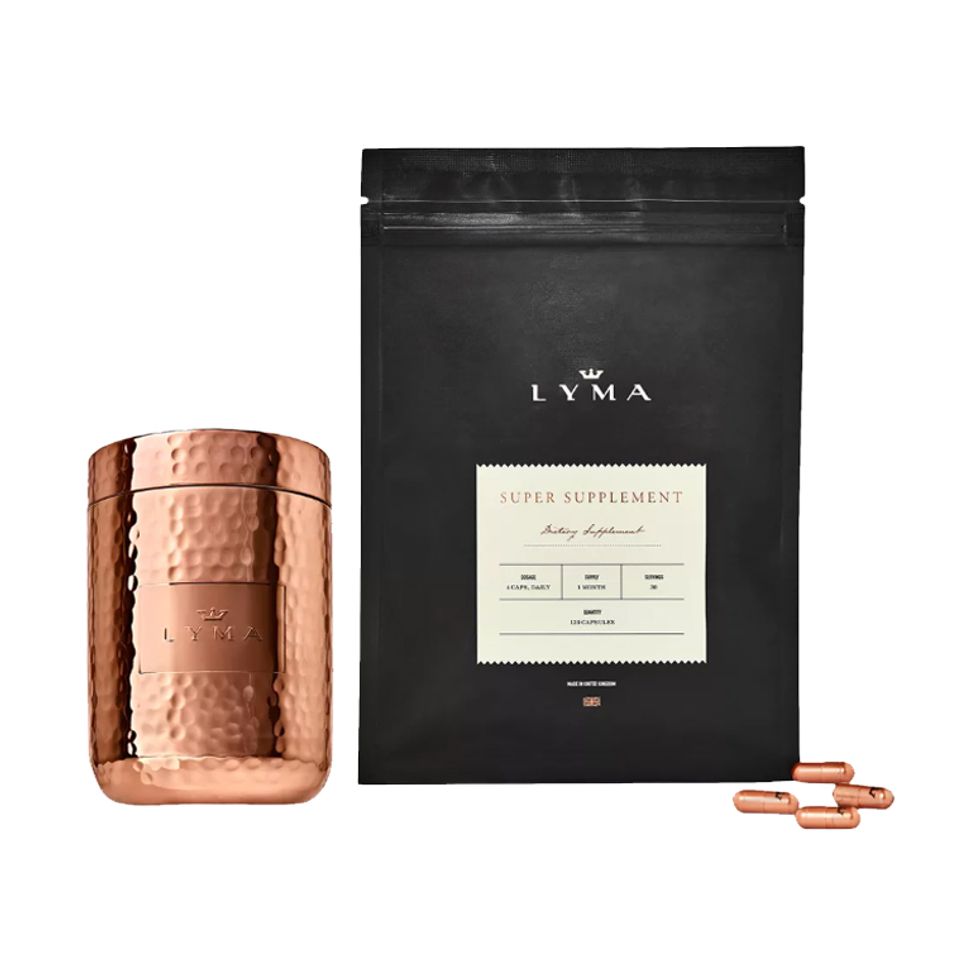
This supplement contains ashwagandha, which is an ideal adaptogen for stress relief. The creators at LYMA decided to only work with ashwagandha root to prevent toxicity in this supplement. In addition to relieving stress, this supplement also works to balance and clear the skin, increase hydration throughout the body, and increase muscle and bone strength. It’s well worth the price tag.
KAMU Vitality
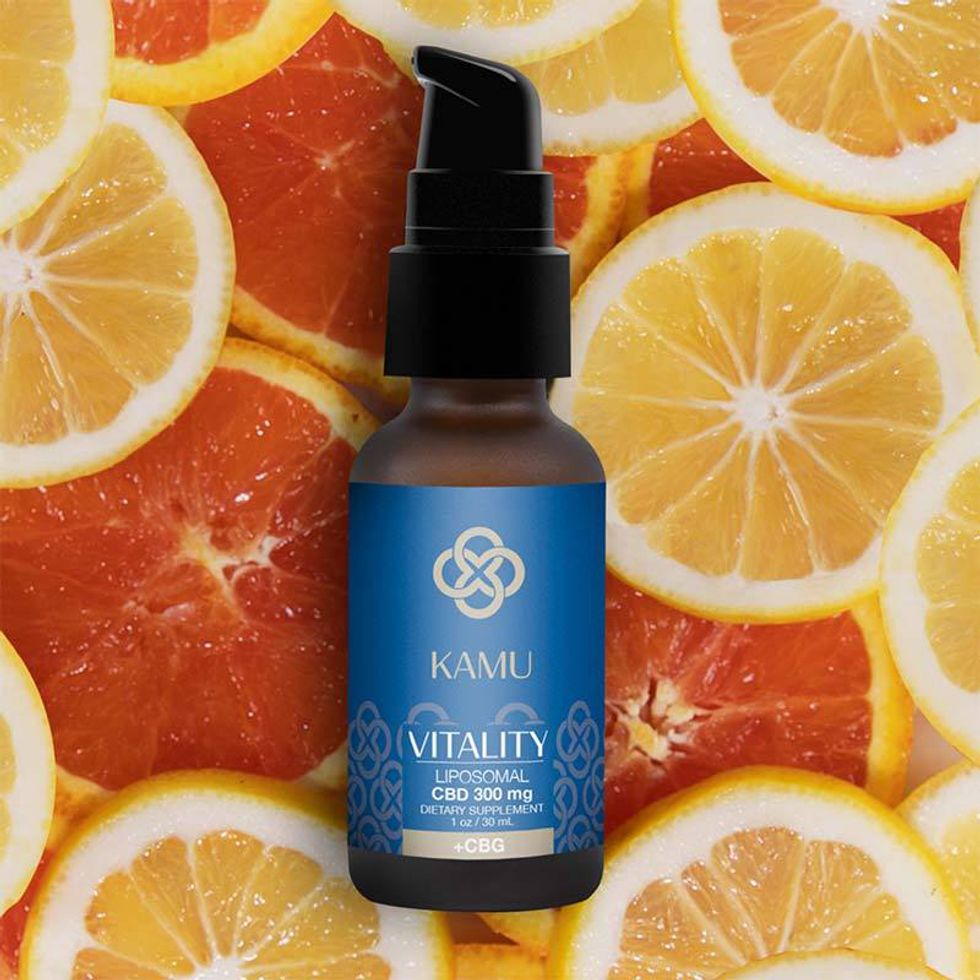
This tincture contains a mixture of reishi mushroom and astragalus that works to regulate the functions of the adrenal gland. It also contains vitamin C and cordyceps and chaga mushrooms, which have adaptogenic effects on the body.
Moon Juice SuperYou Daily Stress Management
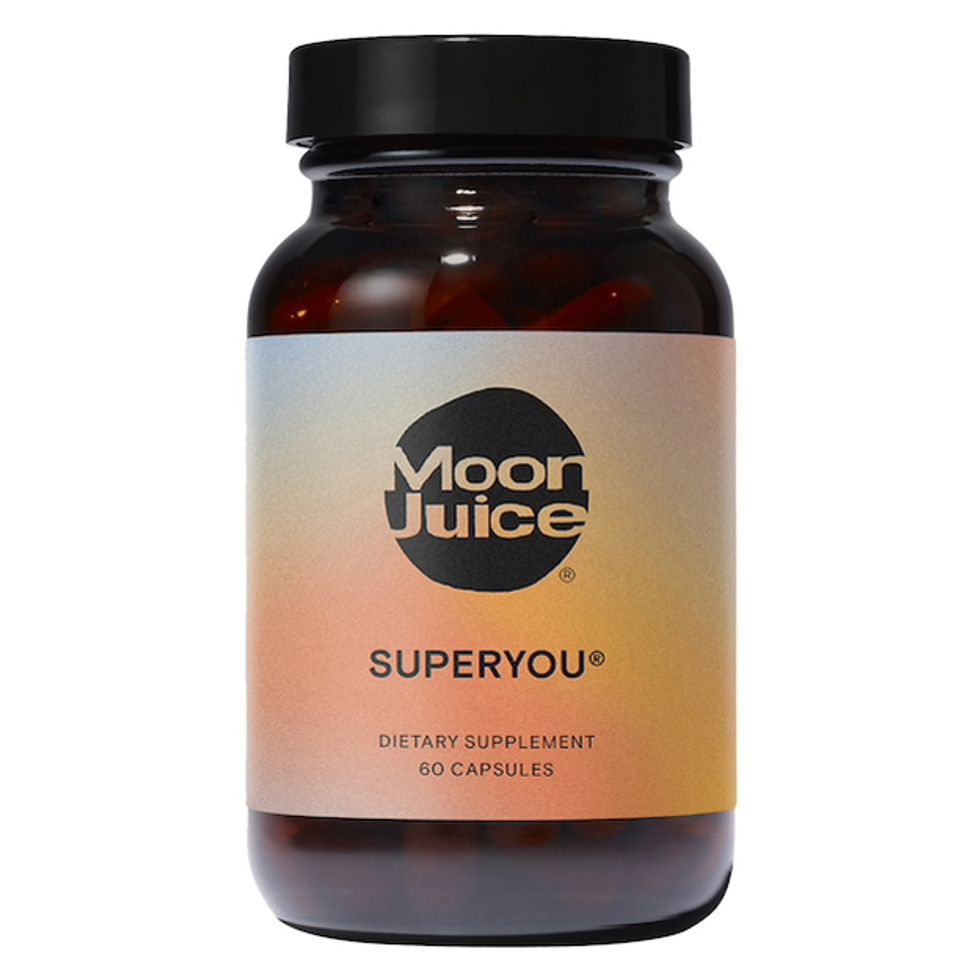
According to founder of Moon Juice Amanda Chantal Bacon, this product is the culmination of Bacon’s personal adaptogen lineup that she has been using for years. These capsules include ashwagandha, rhodiola, amla extract, and shatavari, making them perfect for maintaining proper stress levels while also improving memory, clarity, and focus throughout the day.
Plant People Stay Sharp
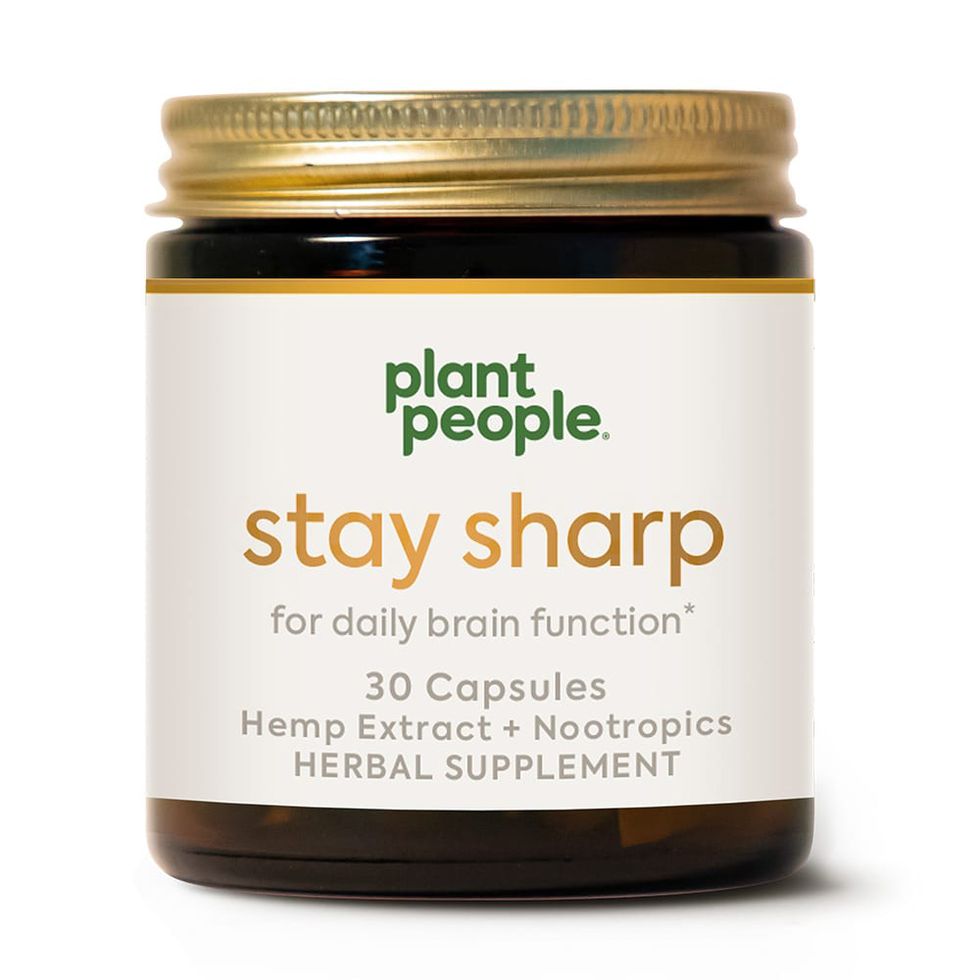
Not only does this capsule contain stimulating rhodiola, but it also has ingredients such as CBD, nervines, and nootropics that all work to calm the mind and improve cognitive function.
Dr. Anna Gold Balance Herbal Tincture 11
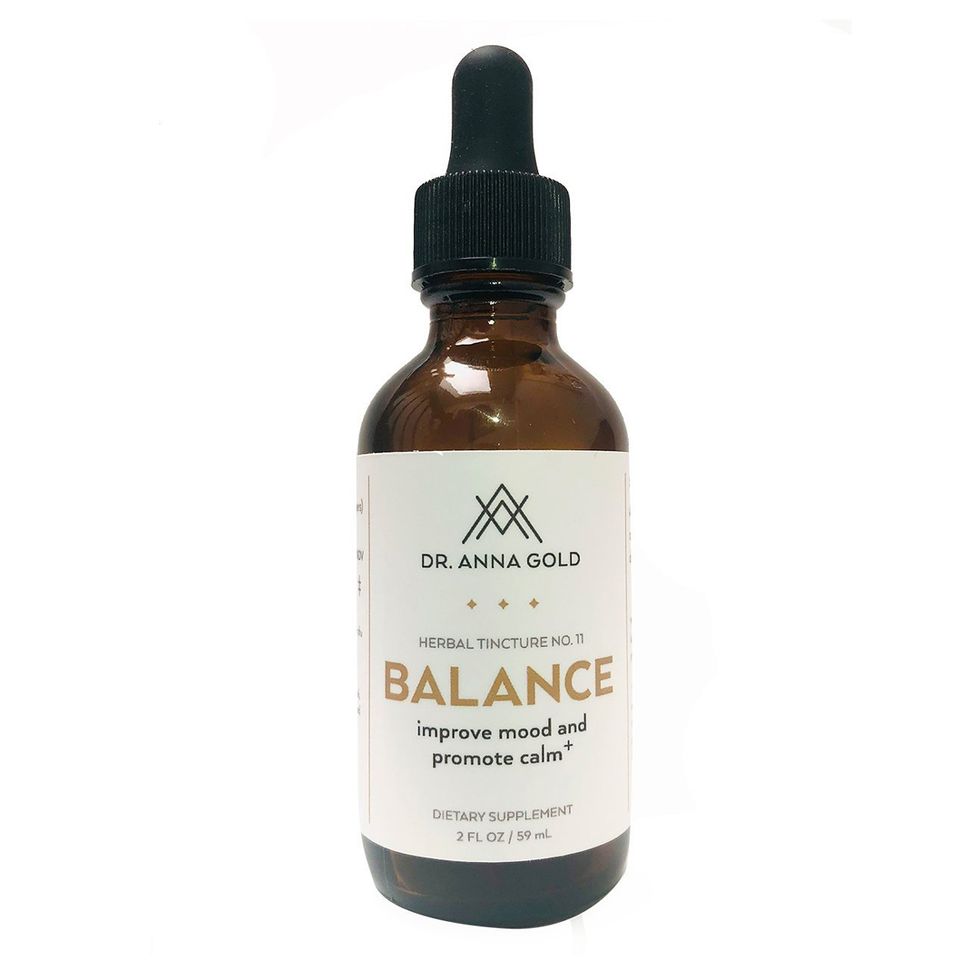
If you’d rather go down the old-school route, consider this blend of ingredients. This tincture contains a mood-enhancing mixture of adaptogens based on a Traditional Chinese Medicine formula dating back to 990 AD. Adaptogens like dong quai root, ashwagandha, and rhodiola all work to alleviate stress in the mind and body. Additionally, this tincture helps to relieve symptoms of stress-related impaired digestive function and PMS.
Kin High Rhode
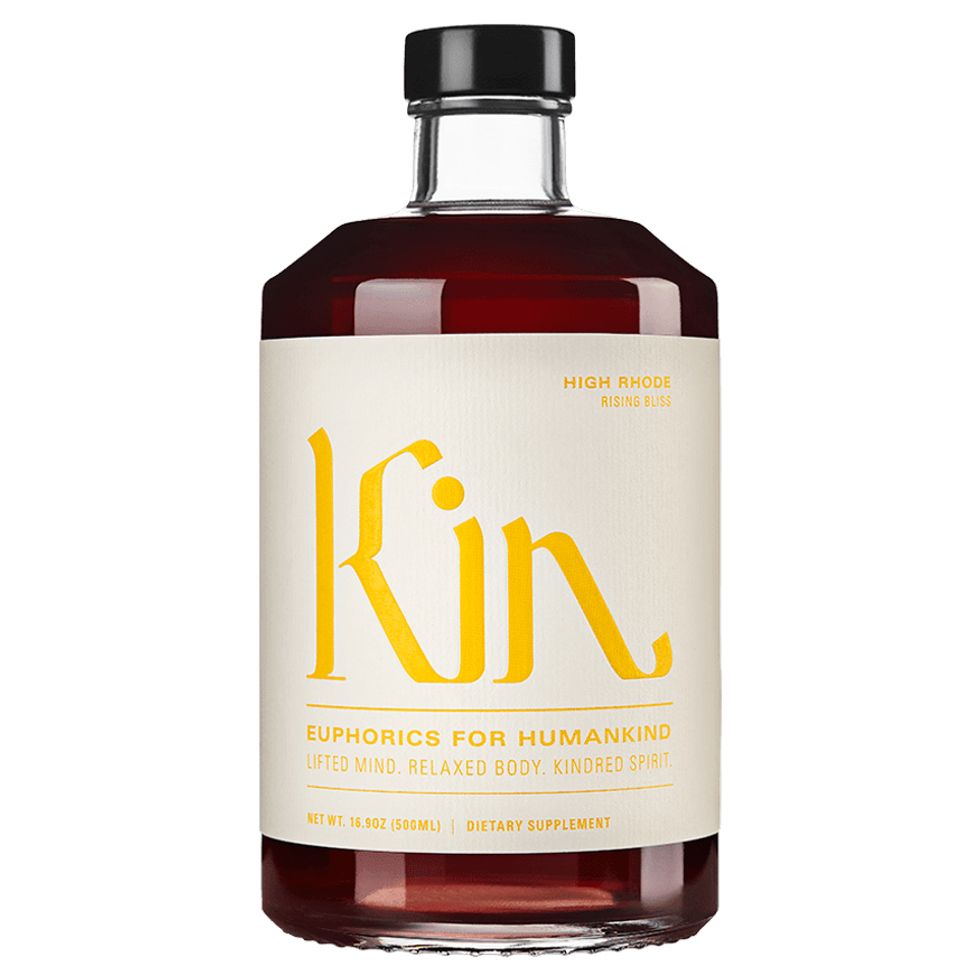
Put down that brunch-time margarita and consider sipping on this powerful blend of botanicals for the day. This drink contains rhodiola, which helps ease the mind into a state of zen as it supports the proper function of the endocrine system.
Sun Potion Reishi Mushroom Powder
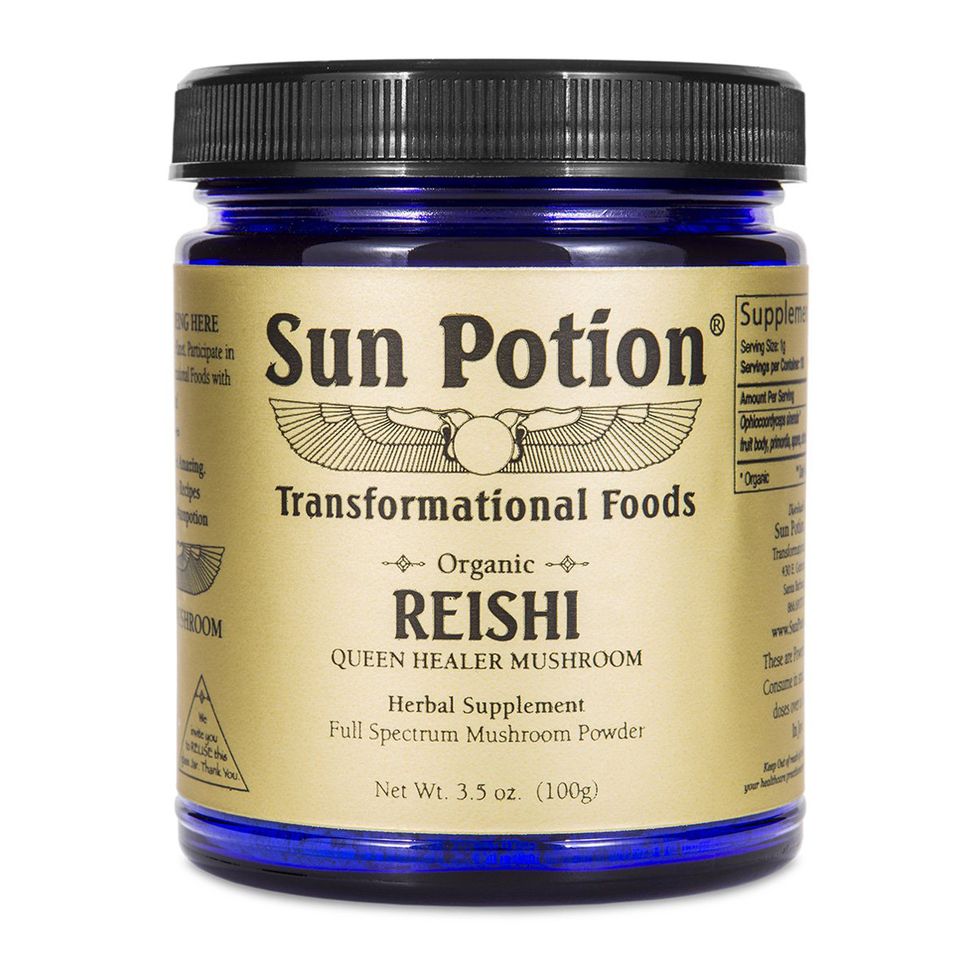
If you are a smoothie person, we strongly urge you to add this reishi mushroom powder into your morning concoctions. Reishi mushroom works to both alleviate stress and support proper immune function.
The Nue Co. Mood
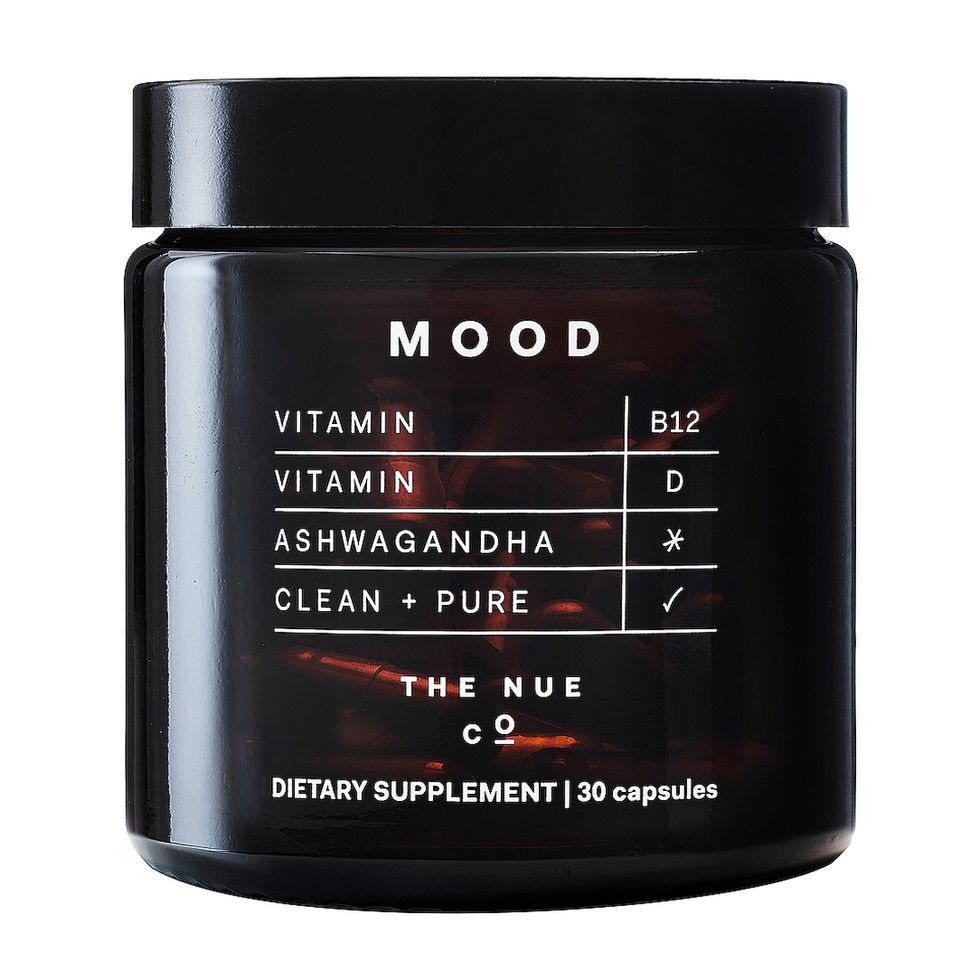
This supplement contains ashwagandha, the most well-known adaptogen for calming overactive adrenal glands. It also contains vitamins B12 and D, which are vital for the metabolism of serotonin, dopamine, and melatonin.
Want more stories like this?
How to Amplify Mental Health Amongst Black Journalists
The Hot New Thing in Health? The Ancient Healing System of TCM
Why Forest Bathing Might Be the Key to Lowering Your Stress Levels




